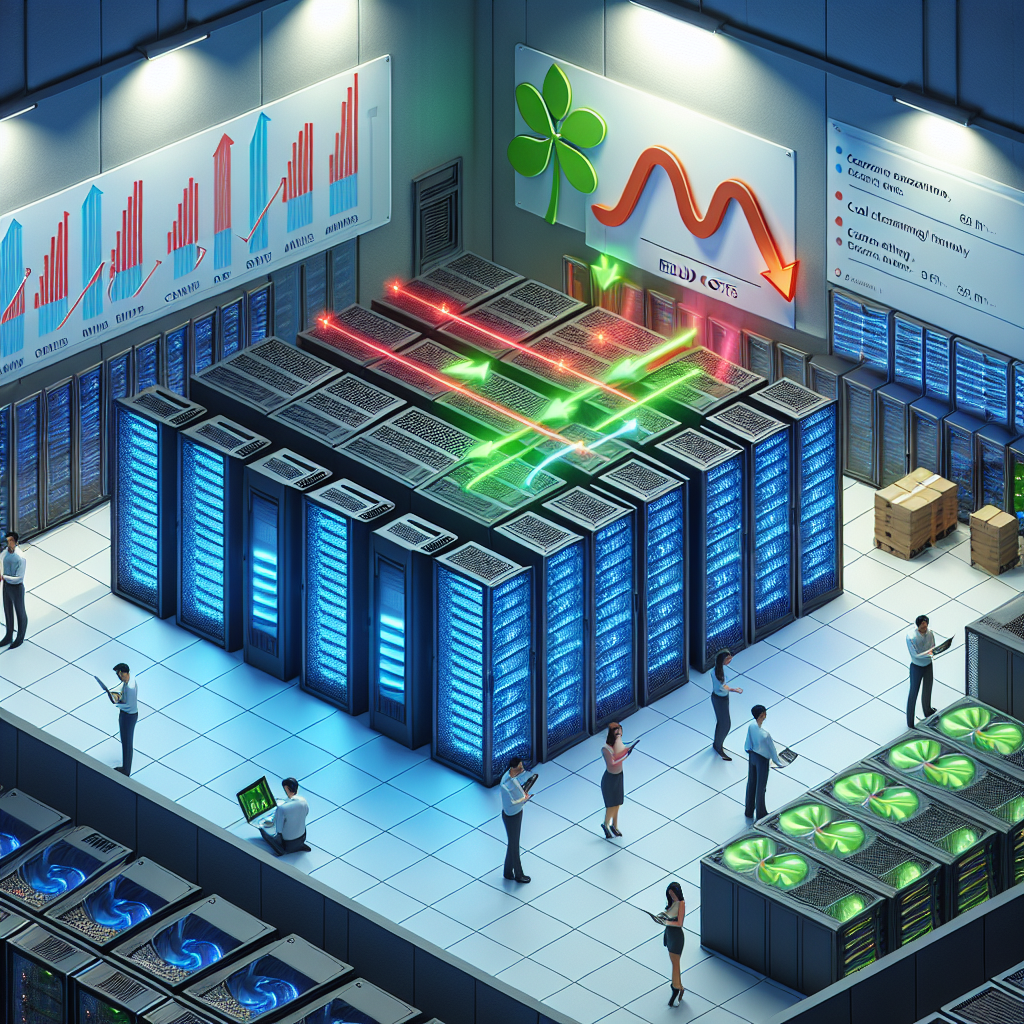Your cart is currently empty!
The Importance of Energy Efficiency in Data Centers: How to Reduce Costs and Environmental Impact

Data centers are the backbone of the digital economy, housing the servers and infrastructure that power the internet and store vast amounts of data. As the demand for data continues to grow exponentially, so does the energy consumption of data centers. In fact, data centers are now responsible for a significant portion of global energy consumption, with estimates suggesting that they account for around 2% of the world’s total electricity usage.
The environmental impact of this energy consumption is significant, with data centers emitting large amounts of carbon dioxide and other greenhouse gases. In addition to the environmental implications, the rising energy costs associated with running data centers are also a major concern for businesses. In order to address these challenges, it is essential for data center operators to prioritize energy efficiency.
Energy efficiency in data centers refers to the practice of optimizing the use of energy to reduce consumption and waste. By implementing energy-efficient practices, data centers can reduce their carbon footprint, lower their operating costs, and improve their overall sustainability. There are several strategies that data center operators can employ to enhance energy efficiency and minimize their environmental impact:
1. Virtualization: Virtualization allows multiple virtual servers to run on a single physical server, reducing the number of physical servers required and thereby decreasing energy consumption.
2. Cooling strategies: Cooling is a major energy consumer in data centers, as servers generate a significant amount of heat. Employing efficient cooling strategies such as hot aisle/cold aisle containment, economizers, and variable speed fans can help reduce energy usage.
3. Energy-efficient hardware: Investing in energy-efficient servers, storage devices, and networking equipment can significantly reduce energy consumption in data centers.
4. Power management: Implementing power management tools and techniques, such as dynamic voltage and frequency scaling, can help optimize energy usage and reduce costs.
5. Renewable energy sources: Incorporating renewable energy sources such as solar or wind power can further reduce the environmental impact of data centers and decrease reliance on fossil fuels.
By implementing these energy efficiency measures, data center operators can not only reduce their environmental footprint but also save on operating costs. Additionally, improving energy efficiency can help organizations meet sustainability goals and enhance their reputation as responsible corporate citizens.
In conclusion, the importance of energy efficiency in data centers cannot be overstated. As data consumption continues to rise, it is crucial for data center operators to prioritize energy efficiency in order to reduce costs, minimize environmental impact, and ensure the long-term sustainability of their operations. By implementing energy-efficient practices and technologies, data centers can play a key role in mitigating the environmental impact of the digital economy and contributing to a more sustainable future.

Leave a Reply